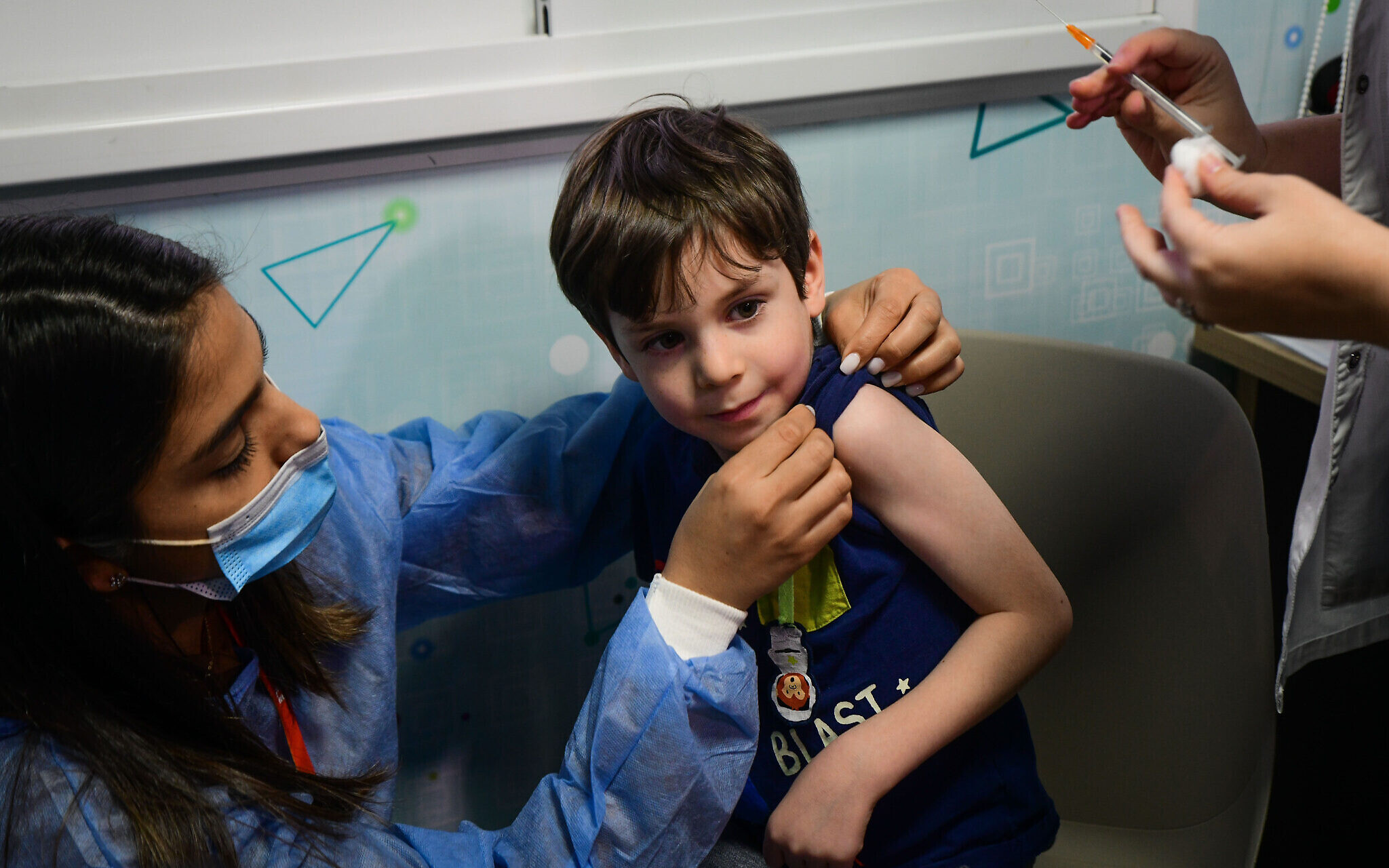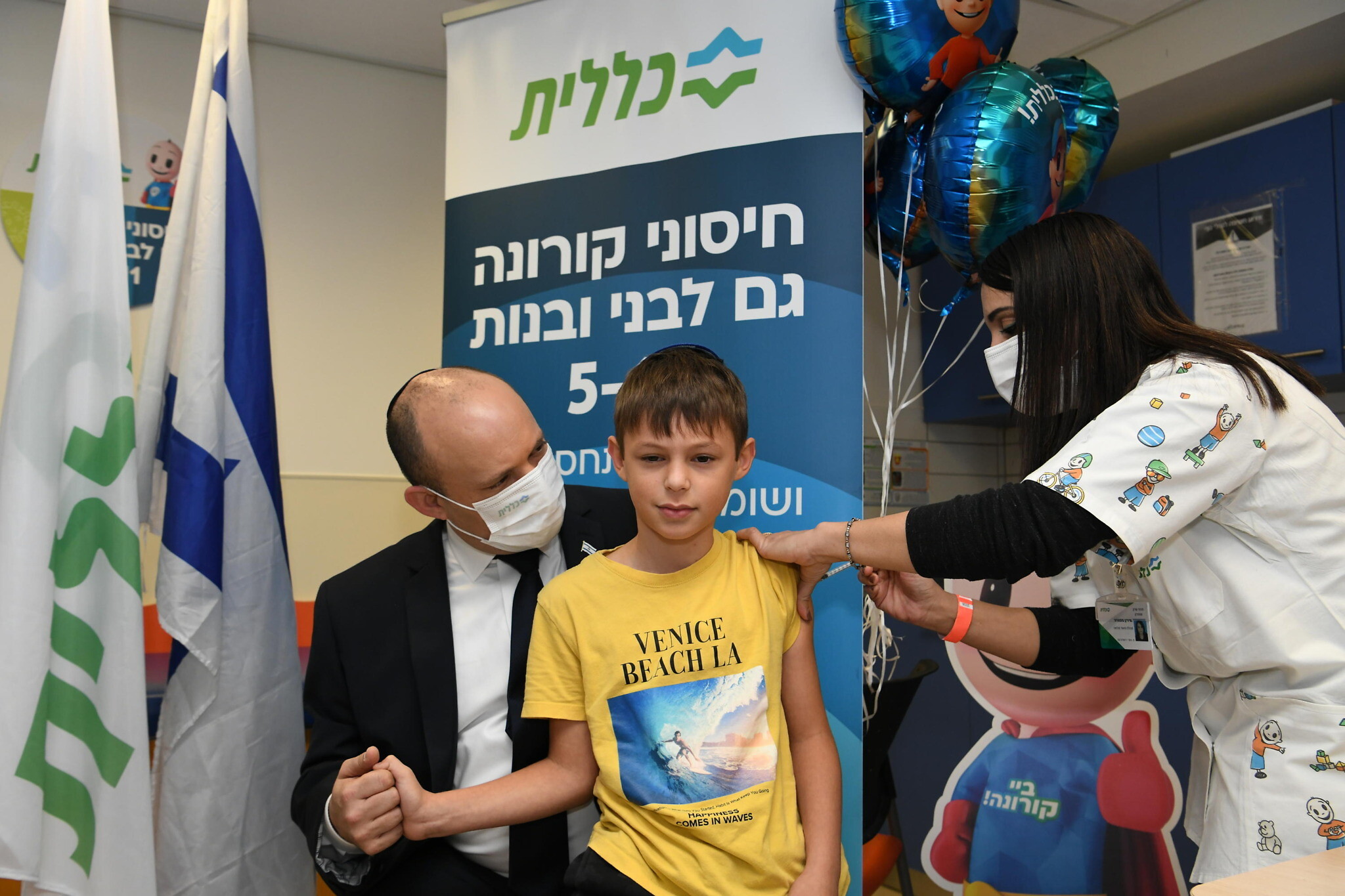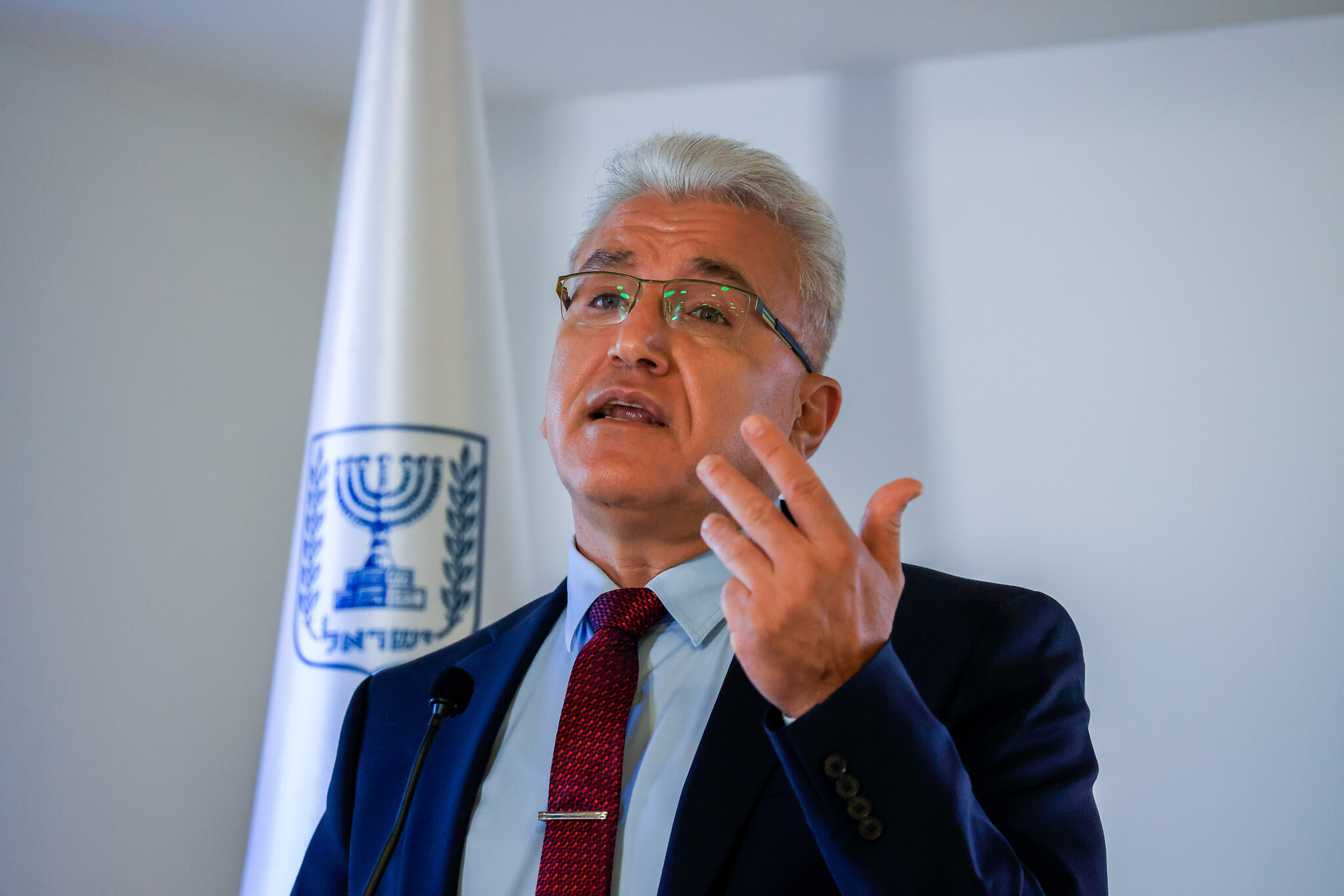Prime Minister Naftali Bennett reportedly warned of possible restrictions to stem COVID-19 infections during the upcoming Hanukkah holiday, as health officials expressed concerns that morbidity among children could continue to rise even as a nationwide campaign to vaccinate children ages 5-11 got underway.
Bennett told a Tuesday night meeting of the coronavirus cabinet of government ministers that large gatherings could be banned during the weeklong holiday which begins on November 28, according to Hebrew media reports.
“Israel is controlling the pandemic well. We took control of the fourth infection wave without closing businesses or schools. The trend in child morbidity in Israel is worrying, the infection rate is above one, but the number of positive tests is stable,” he said, according to Army Radio.
Israel officially launched its coronavirus vaccination campaign on Tuesday for children aged 5-11, hoping to stem the spread of COVID-19 in schools and patch the largest remaining gap in its drive for national immunity from the pandemic.
Officials hope the new inoculation campaign will help bring down the numbers, choke off transmission chains and perhaps stave off any future waves.

A boy gets his first dose of the COVID-19 vaccine in Tel Aviv, on November 22, 2021. (Avshalom Sassoni/Flash90)
Israel recently emerged from a fourth COVID-19 wave and daily infections have been relatively low for the last few weeks. But Health Ministry statistics show that a large share of the new infections have been in children and teenagers and children age 5 to 11 make up nearly half of active cases.
Bennett asked lawmakers not to release any statements on the vaccination of children that could undermine the national campaign, Hebrew media reports said.
The premier, who had his own 9-year-old son get the shot in front of news cameras earlier in the day, said lawmakers with children should get them vaccinated first to set an example, but that authorities would not pressure the public to vaccinate their children by employing incentives, as was done with vaccines for adults.
Israel is one of the first countries to begin giving vaccines to kids in the age group, following the United States, which began vaccinating children 5-11 on November 8.

Prime Minister Naftali Bennett takes his 9-year-old son to get vaccinated against COVID, on November 23, 2021. (Amos Ben Gershom/GPO)
Bennett said during the cabinet meeting that, as students return to school from the Hanukkah holiday, the government may launch an antigen testing program in schools to test all students.
Dr. Sharon Alroy Preis, head of public health services at the Health Ministry, was ambivalent about the proposal, saying “We didn’t find many sick people like that during previous times we did it. I’m not sure it’s worth the resources.”
Tuesday’s meeting was the coronavirus cabinet’s first in almost two months. The pandemic has largely faded from public life since last month, after infection rates had plummeted from all-time highs over the summer following a booster shot campaign.
Ministers at the meeting decided to extend Green Pass regulations meant to restrict access to certain venues to vaccinated or recovered individuals by two weeks, but did not make any decision on tightening or loosening restrictions, Bennett’s office said.
Israel’s coronavirus czar, Salman Zarka, who is spearheading the national response to the pandemic, warned ministers during the meeting that lax enforcement of the Green Pass system was partly to blame for the rise in morbidity.

Coronavirus czar Prof. Salman Zarka attends a press conference about the coronavirus, in Jerusalem, on August 29, 2021. (Olivier Fitoussi/Flash90)
The enforcement of the country’s green pass system for proving vaccinations “is not good,” Zarka said.
The lax enforcement “sends the message that we’re out of the infection wave, and that’s a mistake,” Zarka said, according to Ynet.
“Instead of throwing away the masks, be prepared for a fifth wave,” Zarka said. He also backed a booster dose for youth aged 12-15, who are not currently eligible for a third shot.
The highest positive test rate is among children, with half of new diagnoses in the under-11 age group, he said.
Experts speaking at the meeting cautioned that it’s possible protection provided by the boosters is waning, but said there currently isn’t enough data to back up the claim.
Epidemiologist Eran Segal said that if more people do not get vaccine shots, Israel’s immunity level will decline in the coming months. He said around 1 million children were eligible for vaccinations, and if even a third of them were immunized, the infection rate would significantly drop.
The response to the child vaccination campaign has been lackluster so far, according to anecdotal accounts.
According to the Health Ministry, 711 people were diagnosed with the virus on Monday.
As of Tuesday night, there were 6,131 active cases, including 128 serious infections. There were 16 deaths in the past week, bringing the toll since the start of the pandemic to 8,178.
Over 5.7 million Israelis have received two vaccine doses, and over 4 million have had a booster shot.
You’re serious. We appreciate that!
We’re really pleased that you’ve read X Times of Israel articles in the past month.
That’s why we come to work every day - to provide discerning readers like you with must-read coverage of Israel and the Jewish world.
So now we have a request. Unlike other news outlets, we haven’t put up a paywall. But as the journalism we do is costly, we invite readers for whom The Times of Israel has become important to help support our work by joining The Times of Israel Community.
For as little as $6 a month you can help support our quality journalism while enjoying The Times of Israel AD-FREE, as well as accessing exclusive content available only to Times of Israel Community members.
